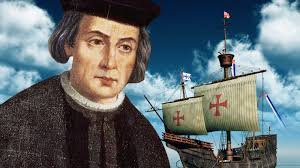@
Cierzo In 1452 Nicholas V issues his papal bull
Dum Diversas, the intention to allow the then King of Portugal to slaughter and enslave Muslims and pagans. This was extended to Portuguese colonial encounters in North Africa, and through Alexander VI's bull
Inter Caetera to the New World in 1493.
It is hard to take a formal and explicit devaluing of human life and liberty as the necessary violence of a conqueror to administer a territory with minimal manpower.
One read is that this was the door to Christianize the Americas. Didn't go so well. The indigenous population was decimated in a generation or so. More than "decimated". Reduced several orders of magnitude. Might have brought more people to Christ with a different approach.
Another read is that any man or woman who is not a Christian in the New World deserves death and enslavement. That is certainly the sentiment echoed in the personal writings of many European "discoverers" of America. Actually it is a sentiment that is not uncommon among Americans today-- that non-Christian life has no value.
I really have no idea what Columbus thought and didn't think. My gut, having read what I have-- he probably was entirely focused on his project at hand.
Read Bartolome de las Casas. A Catholic priest. Same historical and cultural lens as Columbus. He was there. First hand account. In his own words, as a man of faith, he basically describes what he saw as genocide. No, not with that word. I'm good with another word if one can be found.
Personally, I have little interest in "Columbus" one way or another. Sadly it is one of the few days on the American civic calendar other than Thanksgiving where one has a pretext to speak about either Native American experience or the crimes that are associated with imperialism.
This year I took another route. Celebrated Norse pride and a moment to speak about the prejudice of Western and Central Europe against Northern peoples.







